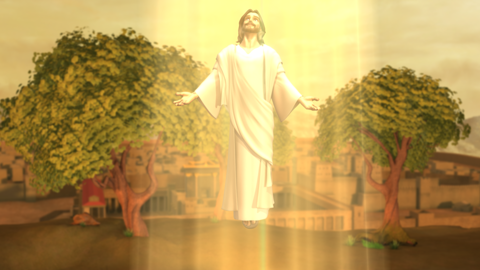
CORE PASSAGE: Acts 1:8
The Spirit of God is the Holy Spirit. He is the third person of the Trinity (Three-in-one God). There is God the Father, God the Son, and God the Holy Spirit. The Hebrew word for the Spirit of God is “Ruach Elohim,” which means “breath” or “breathing out.” Breath is a good word to describe God because breath represents life, a living creative force.
When God created the heaven and the earth, the “Spirit of God was hovering over the surface of the waters” (Genesis 1:2), and “then the Lord God formed the man from the dust of the ground. He breathed the breath of life into the man’s nostrils and the man became a living person” (Genesis 2:7).
The Spirit of God was present throughout history. God told Moses he had “filled Bezalel with the Spirit of God, giving him great wisdom, ability, and expertise in all kinds of craft” (Exodus 31:3), which he would use in the building of the Tabernacle and the Ark.
The Spirit of God also came upon Balaam (Genesis 1:2, Numbers 24:2), Saul (1 Samuel 11:6), messengers (1 Samuel 19:20), Azariah (2 Chronicles 15:1), and Zechariah (2 Chronicles 24:20).
When Jesus was baptized by John, the Spirit of God came down like a dove and settled on Him while God’s voice spoke, “This is my dearly loved Son, who brings me great joy” (Matthew 3:16-17). When Jesus ascended into heaven after His death and resurrection, Jesus promised the gift of the Holy Spirit and His power (Acts 1:8).
The work of the Spirit of God is to convict us of sin (John 16:8), to live in believers (John 14:15-17), to guide believers in all truth (John 16:13), to give spiritual gifts to believers (1 Corinthians 12), to reveal the deep things of God, and to strengthen, comfort, encourage, guide and empower the children of God.
In his letter to the Romans, Paul encourages the Christians to live in the Spirit: “For all who are led by the Spirit of God are children of God” (Romans 8:14). The apostle John warns Christians to be aware of false prophets who do not have the Spirit of God (1 John 4:2-4).
In the Book of Revelation, the phrase “seven Spirits of God” or the “sevenfold Spirit of God” is mentioned four times (Revelation 1:4, 3:1, 4:5, 5:6). Seven is considered God’s number of perfection, and there are different interpretations of the phrase “Spirits of God.” In Isaiah 11:2, the work of the Spirit is described as seven-fold: the spirit of the Lord, wisdom, understanding, counsel, might, knowledge, the fear of the Lord. These “seven Spirits” are interpreted by some scholars as being the Seven Spirits of God described in the Book of Revelation. The Holy Spirit works in our lives to perfect us. In 2 Peter 1:5-11, the sevenfold character of God is described through Christ: moral excellence, knowledge, self-control, patient endurance, godliness, brotherly affection, and love for everyone. Some scholars believe that these refer to the seven Spirits of God.
LIFE LESSONS:
• Allow the Spirit of God to bring you to Christ, to live in you, and to work in your life.
• The Spirit of God (the Holy Spirit) will give you wisdom, understanding, knowledge, guidance, and power.
Other New Testament Biographies


